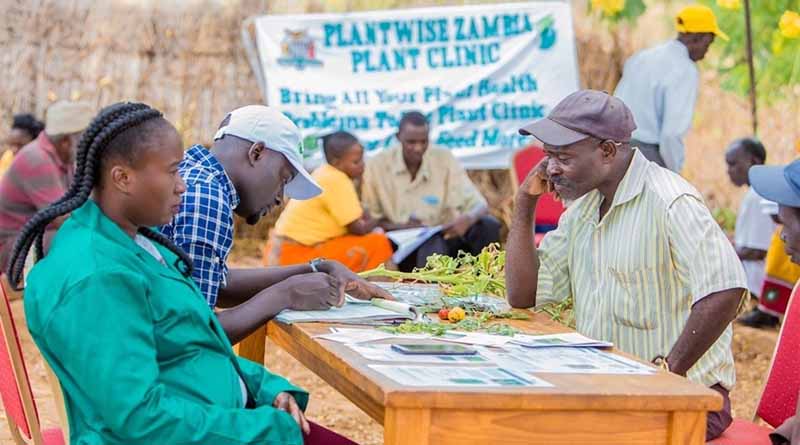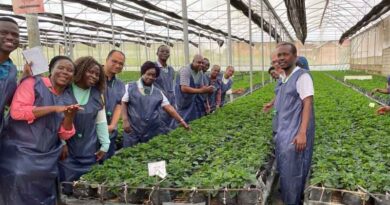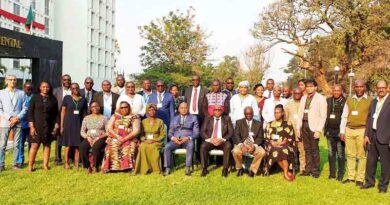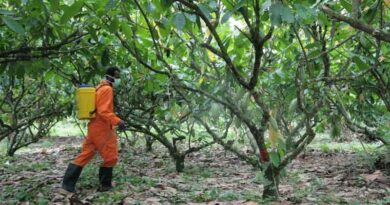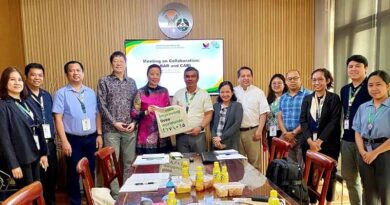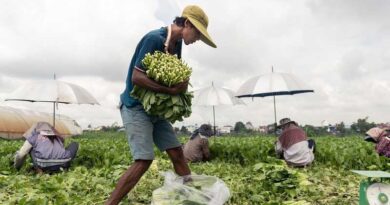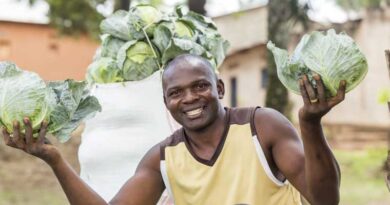Support for Greater Plant Health Highlighted at Commission of Phytosanitary Measures
25 April 2024, Africa: Support for greater plant health has been highlighted at the 18th Session of the Commission on Phytosanitary Measures (CPM) held at the headquarters of the Food and Agriculture Organization of the United Nations (FAO) in Rome, Italy.
The CPM is the governing body of the International Plant Protection Convention (IPPC), that CABI’s mission and strategy are in support of, which aims to protect the world’s plants, agricultural products, and natural resources from a range of plant pests.
As recognised partner of the IPPC, CABI is invited to the Commission as an observer, so is invited to submit a written report which outlines how its recent work supports contracting parties in their implementation of the Convention.
The FAO states that In Africa, the estimated crop damage by pests ranges from 30-60 percent or USD $65.5 billion annually. By building the resilience of their phytosanitary systems, countries can prevent the entry or spread of pests in their territories.
Protection for sustainable crop production systems
In the report, compiled by Dr Melanie Bateman, CABI’s Contact Point for IPPC, it was reported that in October 2023, CABI and the FAO signed a Memorandum of Understanding with the aim of consolidating, developing and strengthening existing cooperation to achieve common objectives of plant production and protection for sustainable crop production systems, including through working with IPPC.
She said various CABI programmes and projects – including the global CABI-led PlantwisePlus programme – in the last year had supported phytosanitary capacity development and technical assistance relating to the overall implementation of the IPCC and its standards.
Dr Bateman said that in some of these activities, CABI used its information resources and tools such as the CABI Compendium, Horizon Scanning Tool, and Pest Risk Analysis Tool to train personnel from NPPOs.
In many cases work was undertaken collaboratively, such as with FAO sub-regional offices in Africa and Asia, the Standards and Trade Development Facility (STDF), Regional Plant Protection Organisations (RPPOs), contracting parties’ NPPOs and other public and private sector partners, she said.
Horizon scanning activities
Under PlantwisePlus, for example, Dr Bateman outlined how horizon scanning activities were continued or initiated in Bangladesh, Pakistan, Burkina Faso, Burundi, Kenya, and Rwanda during 2023. National pest risk analysis (PRA) training and/or write shops, to draft PRAs on priority pests, were conducted in Bangladesh, Pakistan, Burkina Faso, and Ghana.
In partnership with the African Union Inter-African Phytosanitary Council (AU-IAPSC) and the FAO, the process for undertaking regional PRAs was also initiated with Regional Economic Communities (RECs) in Africa, namely East African Community (EAC), Economic Community of West African States (ECOWAS) and Sahel, and the Southern Africa Development Community (SADC).
Dr Bateman said Ethiopia, Eritrea and Somalia also participated in the regional PRAs. Follow-on activities in 2024 will seek to roll out this approach in other regions globally.
She further highlighted that CABI is supporting the Kenya Plant Health Inspectorate Service (KEPHIS) with the implementation of a project to manage scale insects in fresh fruits in East Africa to enhance market access.
Compliance with phytosanitary requirements
This will increase compliance with phytosanitary requirements for target horticultural products by improving surveillance and management of scale insect pests thus leading to improved production and market access for fresh fruits including pawpaw, mango, avocado, and citrus.
Dr Bateman added that CABI is also working with partners in Kenya to introduce Acerophagus papayae, a biological control agent of papaya mealybug (Paracoccus marginatus), to support smallholder farmers in the country’s coastal region.
At the Commission, Dr Bateman was joined by Dr Roger Day, CABI’s Global Advisor, Plant Health.
(For Latest Agriculture News & Updates, follow Krishak Jagat on Google News)

